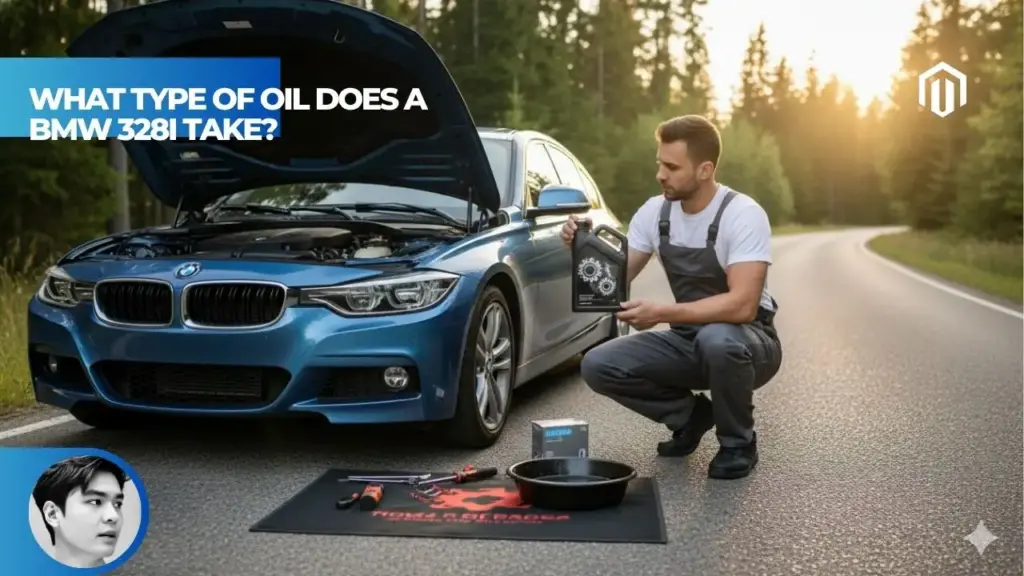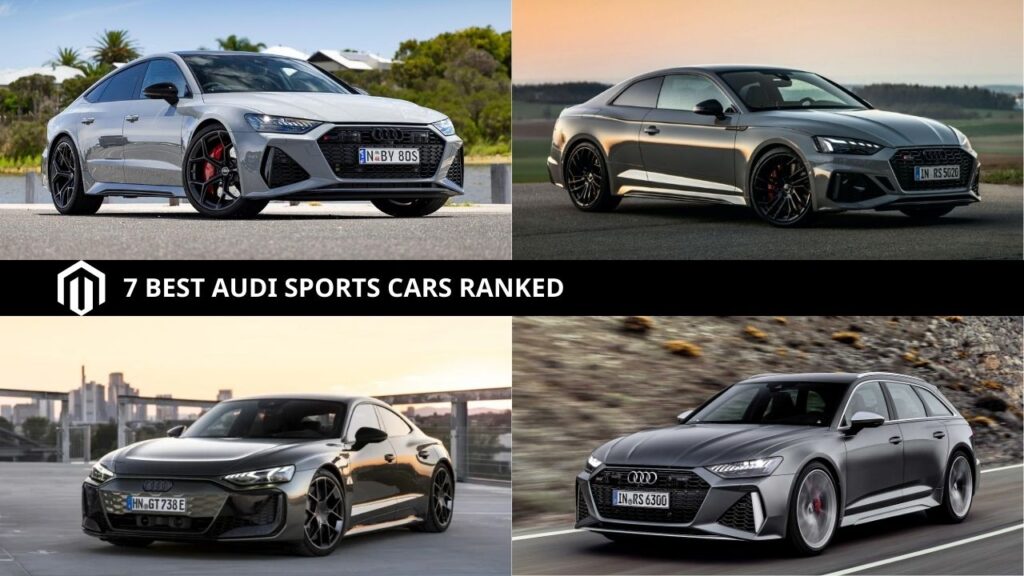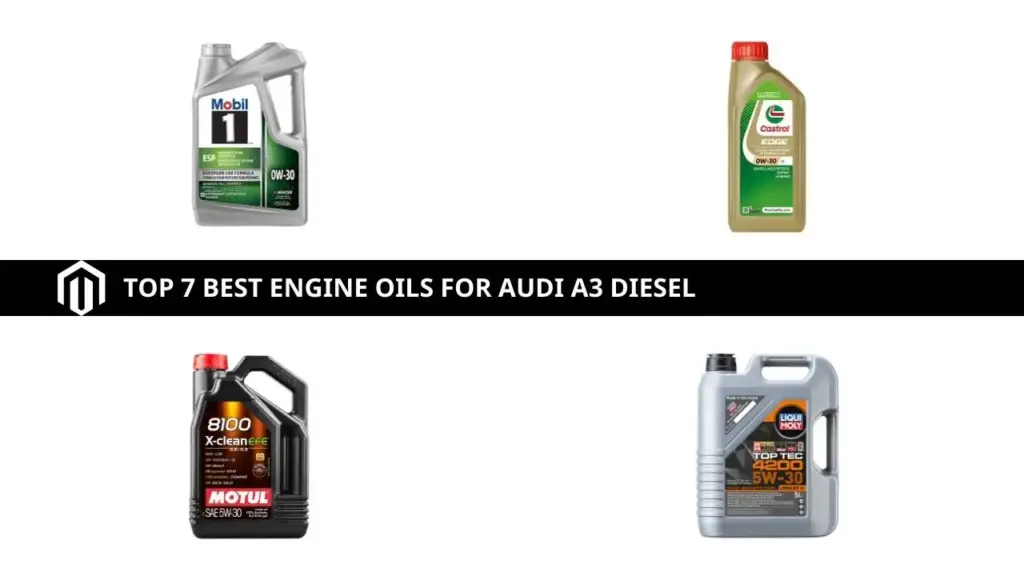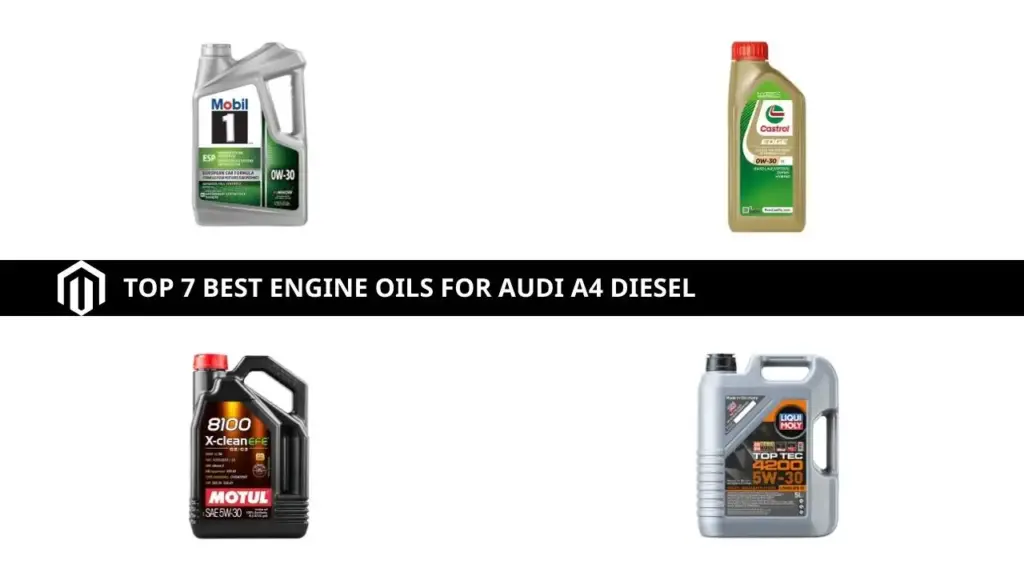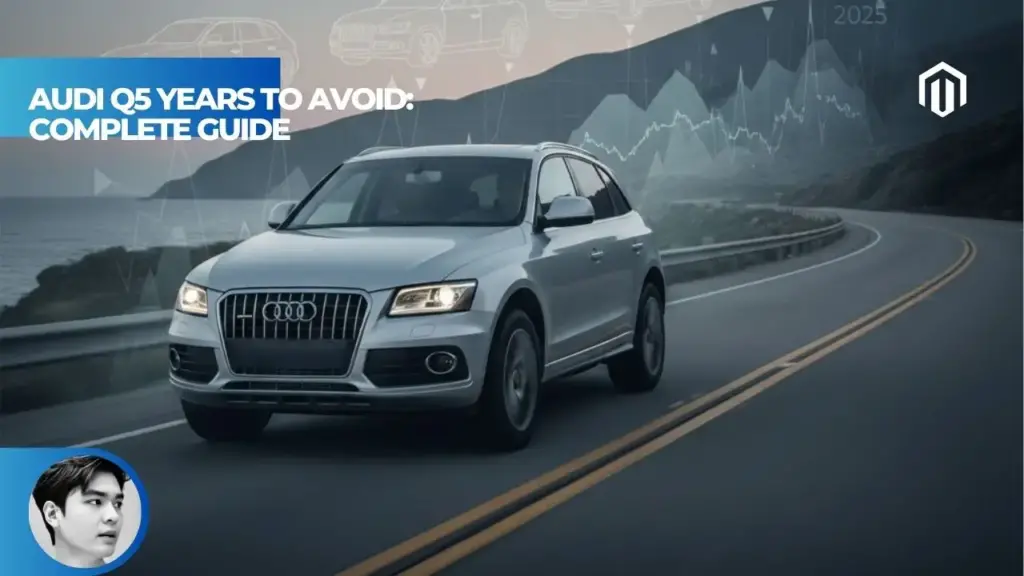You may also like:
The BMW 328i requires full synthetic engine oil meeting BMW Longlife-01 (LL-01) specification[1]. For most 328i models, use SAE 5W-30 or 0W-30 viscosity. The N52 engine (2007–2013 E90) takes 6.5 liters (6.9 quarts), while the N20 engine (2012–2016 F30) requires 5.25 liters (5.5 quarts)[2][3].
BMW 328i Oil Specifications by Engine
The 328i came with two different engines depending on generation. Your engine type determines exact oil requirements.
| Engine | Years | Chassis | Oil Specification | Viscosity | Capacity |
|---|---|---|---|---|---|
| N52B30 | 2007–2013 | E90/E91/E92 | BMW LL-01 | 5W-30 | 6.5L (6.9 qt) |
| N20B20 | 2012–2016 | F30/F31 | BMW LL-01 | 0W-20 or 5W-30 | 5.0L (5.3 qt) |
Always verify your engine code on the underhood sticker[1][2]
BMW specifies LL-01 (Longlife-01) as the minimum standard for all 328i gasoline engines. This specification ensures the oil meets requirements for both the engine internals and BMW’s long-drain service intervals[4].
N52 Engine Oil Requirements (E90 328i)
The naturally-aspirated N52 inline-6 powers most pre-2012 328i models. This engine is known for tight tolerances and requires quality synthetic oil to prevent issues.
Recommended Oil for N52
- Viscosity: SAE 5W-30 (primary) or 0W-30
- Specification: BMW Longlife-01 minimum
- Capacity: 6.5 liters (6.9 quarts) with filter
- Filter part number: 11 42 7 953 125[3]
During my years maintaining E90s, the N52 responds well to quality 5W-30 oils. Some owners prefer 5W-40 for track use, but stick to 5W-30 for daily driving[5]. The extra viscosity of 5W-40 offers more protection at high temperatures, though it’s not required for normal use.
When filling the N52, add 6 liters initially, run the engine for a minute, then check the electronic dipstick. Top off as needed—never exceed the full mark[3]. For more details on this engine, see our guide on what engine the BMW 328i has.
N20 Engine Oil Requirements (F30 328i)
The turbocharged N20 four-cylinder replaced the N52 starting in 2012. BMW initially specified 5W-30 but later switched to 0W-20 for improved fuel economy[1].
Recommended Oil for N20
- Viscosity: 0W-20 (newer recommendations) or 5W-30
- Specification: BMW Longlife-01 or LL-01 FE
- Capacity: 5.0–5.25 liters (5.3–5.5 quarts) with filter[2]
The catch with the N20? It’s more sensitive to oil quality than the N52. Turbocharger heat demands oils with excellent thermal stability. Cheap conventional oils break down faster under boost pressure, potentially causing premature turbo wear[1].
For tuned or aggressively-driven N20 engines, BimmerWorld recommends stepping up to Red Line 5W-30 or BMW 0W-30 rather than the fuel-economy-focused 0W-20[1]. The thicker oil offers better protection at high loads.
BMW LL-01 vs LL-01 FE: What’s the Difference?
BMW offers two Longlife-01 variants with different characteristics.
| Specification | HTHS Rating | Best For | Notes |
|---|---|---|---|
| LL-01 | ≥3.5 cP | Performance, high loads | Better protection |
| LL-01 FE | ≥3.0 cP | Daily driving, fuel economy | Required under some warranties |
HTHS = High Temperature High Shear viscosity[4]
LL-01 FE (Fuel Economy) has a lower High Temperature High Shear rating, meaning it flows more easily at operating temperature[4]. This improves fuel economy by 1–2% but provides slightly less protection under extreme conditions.
While under warranty, stick with whatever specification your dealer used—typically LL-01 FE for US-market vehicles[4]. Once out of warranty, switching to standard LL-01 or even LL-04 gives better protection with minimal fuel economy impact. Understanding BMW maintenance costs helps plan for regular oil changes.
BMW-Approved Oils for 328i
You don’t need to buy dealer oil. Several brands carry official BMW LL-01 approval.
Best Oils Meeting BMW LL-01
- Castrol Edge Professional 5W-30 – BMW’s factory fill for many models[6]
- Mobil 1 ESP 5W-30 – Carries both LL-01 and LL-04 approvals[6]
- Liqui Moly Special Tec LL 5W-30 – German-made, widely recommended[7]
- Pennzoil Euro L 5W-30 – LL-04 approved, excellent value at ~$23 per 5-quart jug[4]
- Quaker State Euro 5W-40 – LL-01 approved, available at Walmart[4]
- Red Line 5W-30 – Premium option for performance driving[1]
BMW’s own branded oil (Part# 83212365946 for 5W-30) works well but costs more than equivalent aftermarket options[8]. What matters is the LL-01 certification printed on the bottle—not the brand name.
Oils to Avoid in Your 328i
Not all synthetic oils meet BMW requirements. Avoid these:
- Conventional (non-synthetic) oils – Won’t meet LL-01 specifications
- Dexos-only oils – GM specification, not compatible
- High-mileage formulas – Typically not LL-01 certified
- Budget “synthetic blend” oils – Inadequate protection
- Oils without explicit LL-01 marking – Even if labeled “European formula”[1]
Using non-approved oil can void your powertrain warranty if it causes damage. More practically, BMW’s long 10,000-mile oil change interval assumes you’re using oil that maintains protective properties that long[2].
BMW 328i Oil Change Intervals
BMW recommends oil changes every 7,500 to 15,000 miles depending on driving conditions and the oil condition monitoring system[2].
| Driving Style | Recommended Interval |
|---|---|
| Normal commuting | 10,000 miles |
| Severe (short trips, towing) | 7,500 miles |
| Highway-dominant | Up to 15,000 miles |
Follow the onboard service indicator when equipped[2]
That said, many enthusiasts (myself included) prefer shorter intervals of 5,000–7,500 miles, especially on N20 turbo engines. Oil is cheap compared to engine repairs. For DIY changes, see our guide on what coolant BMW requires—it pairs well with oil service maintenance.
How to Check BMW 328i Oil Level
The 328i uses an electronic oil level sensor rather than a traditional dipstick. Here’s how to get an accurate reading:
- Park on level ground
- Warm the engine to operating temperature (drive at least 10 minutes)
- Turn off engine and wait 5 minutes for oil to settle
- Access oil level through iDrive: Vehicle Info → Vehicle Status → Engine Oil[3]
The electronic gauge shows MIN to MAX range. Keep oil between 3/4 and full. Never overfill—excess oil can cause foaming and reduced lubrication[3].
If your 328i consistently shows low oil between changes, check for leaks at the valve cover gasket and oil filter housing gasket—common failure points on both N52 and N20 engines.
BMW 328i Oil Change Cost
Expect to pay different rates depending on where you service your 328i.
| Service Location | Typical Cost | Includes |
|---|---|---|
| BMW Dealer | $150–$250 | OEM oil, filter, inspection |
| Independent Shop | $80–$150 | LL-01 oil, quality filter |
| DIY | $50–$80 | Oil + filter only |
Prices vary by region[2]
DIY oil changes save significant money over dealer service. You’ll need approximately $45–60 in oil (two 5-quart jugs for N52, one for N20) plus $15–20 for a quality oil filter[8].
Key Takeaways
- BMW 328i requires full synthetic oil meeting BMW Longlife-01 (LL-01) specification—SAE 5W-30 is the most common viscosity for both N52 and N20 engines[1].
- The N52 inline-6 (E90 chassis) holds 6.5 liters (6.9 quarts), while the N20 turbo-four (F30 chassis) takes approximately 5.0 liters (5.3 quarts)[2][3].
- Castrol Edge, Mobil 1 ESP, Liqui Moly Special Tec LL, and Pennzoil Euro L are all BMW-approved alternatives to expensive dealer oil[4][6].
- BMW recommends 10,000-mile oil change intervals, but many owners prefer 5,000–7,500 miles for better engine protection, especially on turbocharged N20 models[2].
- DIY oil changes cost $50–80 versus $150–250 at BMW dealers—using the same LL-01 approved oil[8].
FAQs
Can I use 5W-40 oil in my BMW 328i?
Yes, if it carries BMW LL-01 approval. Several LL-01 oils come in 5W-40 viscosity (Liqui Moly, Castrol, Quaker State)[4]. The thicker oil offers slightly more protection at high temperatures, making it suitable for aggressive driving or hot climates.
Is 0W-20 oil okay for the N52 engine?
Not recommended. The N52 was designed for 5W-30 oil. While 0W-20 flows better at cold startup, it may not provide adequate protection at operating temperature for this engine[1]. Stick with 5W-30 or 0W-30 LL-01 oils.
How often should I change oil in a high-mileage 328i?
For 328i models over 100,000 miles, consider 5,000–7,500 mile intervals regardless of the service indicator[2]. Older engines benefit from more frequent oil changes to flush accumulated deposits and maintain proper lubrication.
What happens if I use non-BMW-approved oil?
Short-term, nothing dramatic. Long-term, non-approved oils may cause increased wear, deposit formation, and potential warranty claim denial. BMW’s LL-01 specification ensures compatibility with seals, emissions systems, and long drain intervals[4].
Is dealer oil the same as Castrol Edge?
Often yes. BMW dealers typically use Castrol Edge Professional as their bulk fill oil, which is essentially the same as retail Castrol Edge 5W-30 with LL-01 approval[6]. The dealer markup covers labor and convenience, not superior oil.
References
- BimmerWorld. (2025). Engine Oil Info for BMW. https://www.bimmerworld.com/BMW-Engine-Oil/
- BimmerBoom. (2025). Comprehensive Guide to BMW 328i Oil Capacity and Maintenance Tips. https://bimmerboom.com/bmw-328i-oil-capacity-essential-maintenance-guide/
- E90Post Forums. (2024). N52 Oil Change Question. https://bimmerpost.com/forums/showthread.php?t=2081399
- G30 BimmerPost Forums. (2024). What Oil Should I Use? LL-01 FE 0W-30 or LL-01 5W-30? https://g30.bimmerpost.com/forums/showthread.php?t=2090221
-
Reddit r/E90. (2022). What Weight Oil Do You Guys Use in the N52?
What weight oil do you guys use in the n52?
byu/Bacon_Baconator inE90 - Variety Auto Solutions. (2025). Best Engine Oils for Different Types of BMW Models. https://varietyautosolutions.ca/best-engine-oils-for-different-types-of-bmw-models-2025-guide/
- AUTODOC UK. (2024). BMW LL-01 Approved Oil List. https://www.autodoc.co.uk/s/bmw-ll-01-approved-oil-list
- Heavy Vehicle Inspection. (2025). Best Motor Oil for BMW 328i: Complete 2025 Buying Guide. https://heavyvehicleinspection.com/blog/post/best-motor-oil-bmw-328i-guide

I am a senior automotive analyst at Autvex. Expert vehicle evaluations, in-depth reviews, and objective analysis helping readers make informed automotive decisions with years of industry experience.

